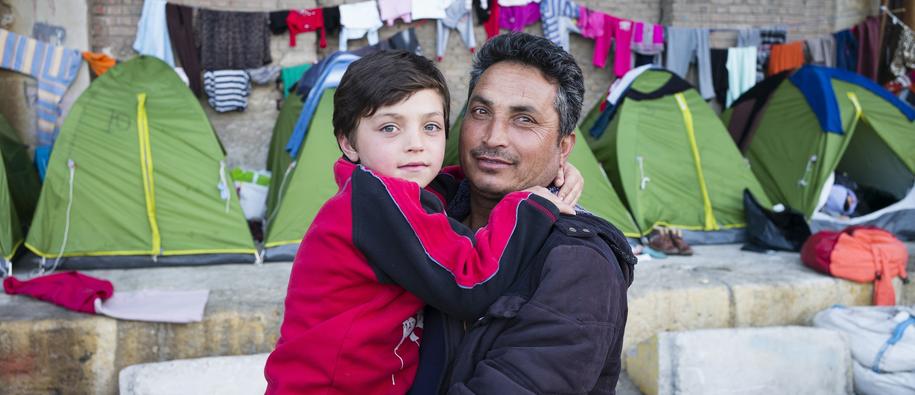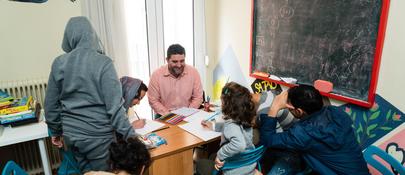
The Challenge
Increasingly since 2013, border and asylum systems in Europe are under big pressure, with more than 700 000 asylum seekers requesting international protection in Europe solely in 2017. Such high numbers of asylum seekers require well-functioning migration management systems that safeguard the right to seek asylum.
Strengthening national asylum and migration management systems
As a result of the influx of migrants, the border and asylum systems in Europe are under pressure. To strengthen national asylum and migration management systems, the Grants aim to strengthen case processing systems and build capacity of case handlers to ensure protection of legal rights and the provision of basic services.
Safeguarding the right to seek asylum
In accordance with the legal instruments of the Common European Asylum System (CEAS) the Grants want to support initiatives that enable asylum seekers to bring forward their claim for international protection, have basic needs covered during the processing of their case, and be given the opportunity to return voluntarily.
Protecting unaccompanied minors and vulnerable groups
Not all asylum systems are designed to accommodate special needs of vulnerable applicants. This include poor identification and registration of unaccompanied minors. Through the Grants strengthening services provision such as guardianship and interviews of unaccompanied minors is a priority.
Our Approach
Our goal
We aim to ensure functioning national asylum and migration management systems to safeguard the rights of asylum seekers.
How?
The funding aims to improve the capacity of the national authorities to establish a sustainable asylum and migration system through training and improved working methods, case handling and reception facilities. The Grants aim at strengthening the civil society in this area and the interaction between authorities and NGOs. Priority is given to improve the conditions for unaccompanied minors and other vulnerable asylum seekers. Supported initiatives include:
- Strengthening cooperation between public authorities, civil society and international organizations like International Organisations for Migration and United Nations High Commissioner (UNHCR)
- Exchange of knowledge and best practice on ways to improve national asylum and migration management systems.
- Develop reception facilities.
- Support service provision by NGOs.
- Support for voluntary return.
Creating partnerships
The exchange of knowledge and experience is particularly important in this area to secure proper organisation of reception facilities and maintain good case management systems to protect vulnerable groups. Bilateral cooperation is secured by donor programme partners such as Norwegian Directorate of Immigration (UDI) at programme level while multiple Norwegian entities are involved at project level.




